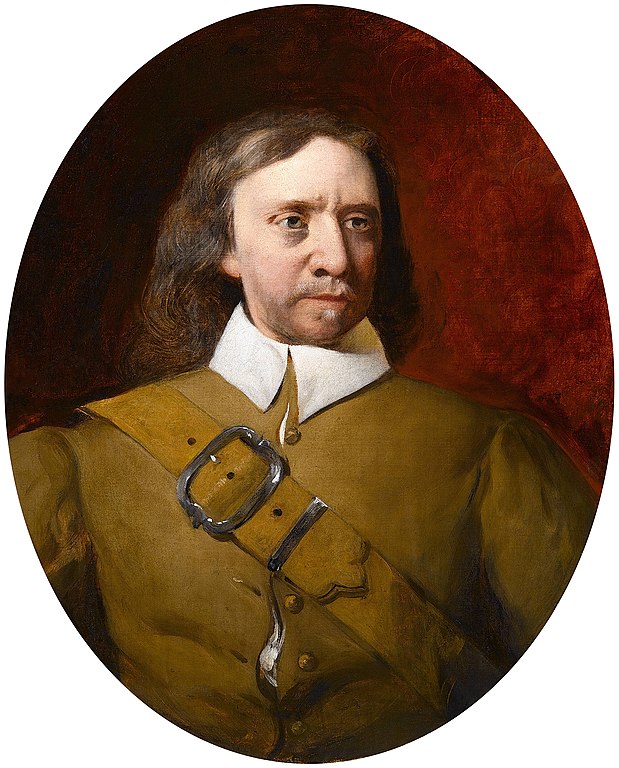
When England Cancelled Christmas
Trees are up all around, festive lights are everywhere, and Christmas carolers are braving the winter chill to spread a bit of joy with their songs. It’s the most wonderful time of the year—apart from that one time when it wasn’t. Yes, like in any Christmas film where the festive joy is under threat of being no more, there was a moment when Christmas was actually cancelled, allegedly at the hands of Oliver Cromwell.
Cromwell And The Civil War
Back in the 17th century, there was a fair bit of unrest in England which ultimately led to a civil war that Cromwell played a big part in. Years after becoming an MP in 1628, he became a military leader when parliament went to war with King Charles I. After the king was ultimately defeated and executed in 1649, Cromwell formed a new republican government known as the Commonwealth of England. He took the rather humble title of Lord Protector and ruled as a bit of a dictator. Not long after his death his republic collapsed and normal service was resumed in England with the monarchy’s restoration under King Charles II in 1660.
However, before all that drama, Cromwell had a hand in something which while not quite as treasonous, was still rather sinister. He banned Christmas, or so it’s commonly believed. But just how much of a role did he play in the cancelling of the most beloved holiday?
Not The Most Wonderful Time Of History
First, a little context is needed. At the time, Puritans were on the rise. English Protestants sought to reform the Church of England by removing Catholic practices in a bid to ‘purify’ (hence the name) religion in England. Puritans believed that people should dress modestly, and prohibited the likes of theatre and games. They also believed that Sunday was the Lord’s day and so should not be a day of rest, but that it should be devoted to religious study. To their credit, they did encourage literacy for both men and women so that everyone could read the bible, so in that sense they were progressive.
With Protestants on the rise throughout Europe, particularly in England in the 1600s, many of them had their eyes on Christmas, and how it was too closely associated with Catholicism as opposed to what was written in the Bible. Parliament was becoming increasingly Puritan, while King Charles I was very much in favour of the Anglican church’s ceremonies.
This came to a head in the 1640s when the country was in a state of upheaval. The King had dissolved parliament for challenging him but parliament reasserted itself with its own mandate, resulting in a bitter civil war across the country. A series of bills were passed, each becoming more restrictive when it came to celebrating Christmas, and it was eventually expunged from the calendar and all celebrations banned. Shops were to remain open, while decorative displays of holly, ivy, rosemary and bay were forbidden. Constables were given power to examine the contents of ovens and to confiscate dishes deemed festive. Military patrols took to city streets to enforce the bans.
The Plum Pudding Riots
Seasonal celebration may have retreated behind closed doors, but, when the mayor of Canterbury put a shopkeeper in the stocks for refusing to open on Christmas Day, the townsfolk rallied. In what became known as the ‘Plum Pudding Riots’, an angry crowd gathered and windows of known Puritans were smashed. The mayor was jostled and felled, his robes torn, and he was obliged to flee. Similar incidents occurred in London, Norwich, Ipswich, and Bury St Edmunds, with the spirit of rebellion spreading to Kentish ports, where sailors mutinied and laid siege to Dover.
A new phase in the Civil War followed and things became even grimmer. King Charles I was executed, Parliamentary rule became absolute, the cause for King and Christmas lapsed into sullen public resentment. For the foreseeable future, there were no Christmases in England and many parts of Europe. It would be 1660 before Cromwell’s republic fell and the monarchy and Christmas restored.
Cromwell In The Clear?
However, is the popular belief that Cromwell was the man behind all this truly justified? Just how much involvement did he have in Christmas’ cancellation? While he may have been the figurehead of the republic, Cromwell had little to do with the banning of Christmas. And while he may have been very much in favour of it, being the proud puritan he was, crucially he was absent from parliament when the key ban was introduced in 1647—at the time he was under threat of arrest by the House of Commons for supporting soldiers’ protests in a dispute over fairer pay.
The story of England’s cancelled Christmas is a fascinating glimpse into a turbulent time when politics, religion and societal change collided. While Oliver Cromwell remains the figure most associated with this festive prohibition, the reality is more complex, with the ban rooted in the Puritan ideals that dominated Parliament during the Civil War.
It’s a reminder of how traditions we hold dear can be reshaped—or even outlawed—by the tides of history.
Finally…
Thankfully, Christmas proved resilient, returning with the monarchy in 1660 and enduring as a beloved celebration ever since. There’s no chance of Christmas being cancelled this year, so many happy returns and fingers crossed, Santa will leave you all something special under your tree. And have a happy new year as well!
If you are interested in studying History, Oxford Open Learning offer the chance to do so at IGCSE and A level, linked below. You can also Contact Us.